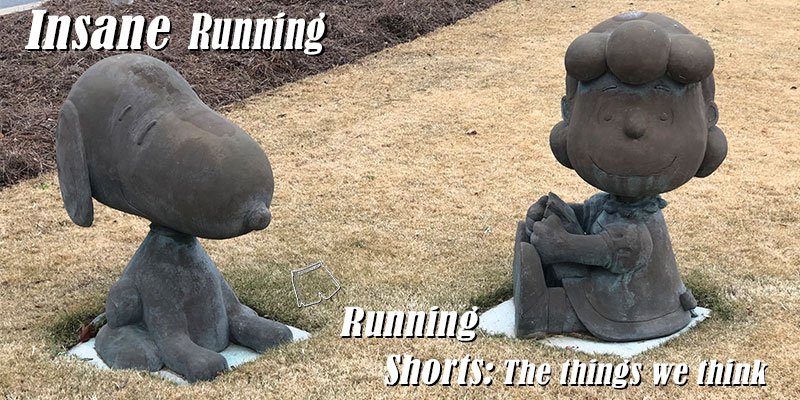Running Shorts: The things we think that are not helpful
We all have them, good days, ok days, bad days, and sometimes really bad ones. As we set out to do our workouts whether they are 10 min or multi hours sessions we often start thinking about our lives and current state of performance. Recognizing that when we are feeling good and things are going our way, our training and racing performance gets a push that allows us to achieve goals and reach new levels of performance.
But sometimes the opposite also happens, we start to get into thinking around negative levels of defeat and that does the opposite effect. Different from the feeling of greatness these come by easy. The thoughts are small in comparison, but more often than not they add up in a compound effect that drags us down into a spiral that sometimes it is difficult to break. We create such narratives of underperformance, of negative thoughts and defeat that keep feeding and getting supported every time we fail or even barely hit the goals. It is a very dangerous terrain because it could be the point for us to decide to quit, give up, or not push enough (Which then keep feeding the same narrative) vs. get out the rut and move ahead with inching you way closer to the goals.
Even when managing or try8ing to control your sugars it can become a little bit defeating, so many variables that play together and sometimes adjustments or situations that usually were predictable they from time to time they don’t work out the same.
The first thing to do it is realized that you are in that situation that is drawing in that narrative of defeat.
1) What are those thoughts? Identify those: Am I on my optimal weight? How can I keep gaining weight? Are my levels ok? Which way are my sugars trending? My training runs are slower and slower. It is taking me longer and longer to warm up. I am so tired all time. I barely hit my pace goal for the training run how can I meet it a race? I am sore all the time this thing is not working out. I do not have time for this.
Determine which are the themes that are creating those narratives. Think about for a bit, then figure out the type of grouping areas as they fit into. Food, Time, Health, Stress and figure out which themes are the ones that come across more often. Once you have the groupings/themes, think about the successes that you have had and the activities that supported the success. Anything that negates the negatives thoughts.
Create a mental list of each one of those that you can ready for use, for example, if it is that you can’t seem to find the time to workout. Think about those times were you were able to get it done and how it felt to complete it. Also think about how you have optimized the time in the past, strategically finding ways to perhaps cover some audio or work material while running. Picking different times of the day. If it is food, find some alternatives that you could have and think about that you have not had in a very long time. Seasonal fruits, vegetables, and others like spices can spark a way of positive thinking.
2) Is there a time of the day that the narrative comes more often than not? Is it when you wake up? When you are getting ready for a workout? The first warm-up session? The 1st couple miles? The last miles of the workout? When weight in? A specific workout?
Like habits sometimes we have triggers that bring in those negative defeating thoughts. You can be aware of and replace those times and/or adjust those. Shuffle the schedule, switch the routine for a while. Look for those times that things went well, that preparation was spot on. Also, it is a great time to review the reasons why? of things, the reasons that are pushing you to take on new goals to feel alive. Review your mantras, your quotes during that time. Think about getting some of the music lined up that you know it gets you moving and excited. (Be aware that you might need to switch it around as listening to the same tunes might lose the effect, so have a compilation and keep it fresh)
3) Is there locations that trigger those stories or experiences? The same hill you use to conquer and now you are struggling with. That “easy” pace target that you were due to do your run today. Perhaps are the same running shoe styles that you have used that you could never feel the flow or get into the zone. Or that race that you did last year and it bombed so bad you almost quit.
Determine those and if you need to change the route, try new paces. Taking a few walks breaks that are intended to break the spiral or the triggers for those thoughts, stories, and narratives that enable the feeling of defeat. Think about, perhaps, the countless time you have conquered those segments as a counter proof.
For every situation we have a choice to think, overthink or not think at all about it. Deciding on how to tackle those moments when to trigger countermeasures is on us. But I believe if at least we take the time to analyze and as we do with running plans for an event, prepare to tackle those we will become better getting out of the negative, defeating thinking mode to at least a neutral and perhaps positive thinking mode that will allow you can continue to enjoy your running journey.

